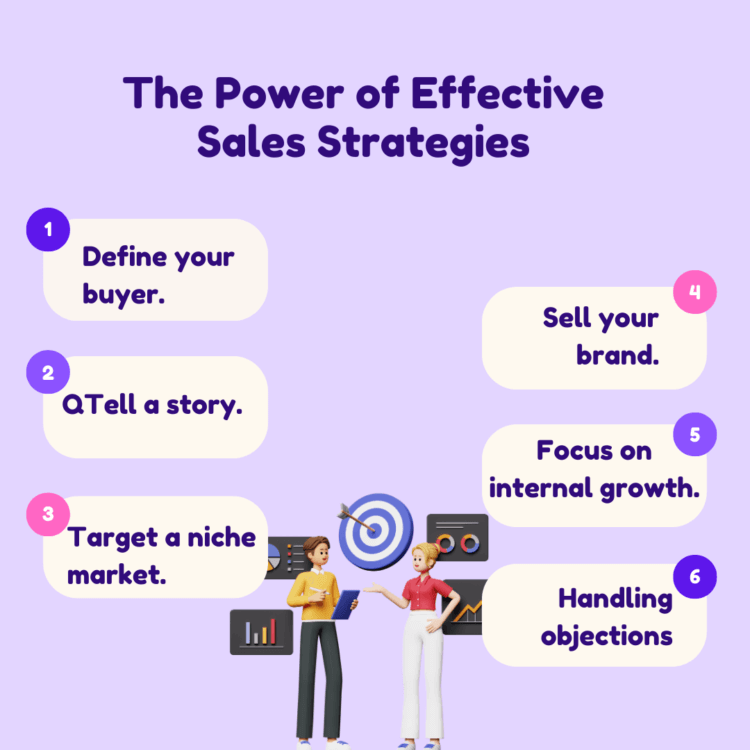The power of effective sales strategies cannot be overstated in the business world. Sales are the lifeblood of any organization, as they generate revenue and drive growth. A well-crafted and executed sales strategy can make the difference between success and failure for a company. Here are some key aspects of the power of effective sales strategies:
Revenue Generation:
Effective sales strategies are designed to increase revenue. They enable a company to identify and capture opportunities in the market, leading to higher sales and, consequently, greater financial success.
Customer Acquisition and Retention:
A strong sales strategy helps a company acquire new customers while also retaining existing ones. Building and maintaining customer relationships is essential for long-term success, as repeat business can be more profitable than constantly acquiring new customers.
Market Penetration:
Sales strategies can help a company penetrate new markets or expand its presence in existing ones. This is crucial for companies looking to grow and stay competitive.
Competitive Advantage:
A well-defined sales strategy can provide a competitive advantage by differentiating a company from its competitors. It can focus on unique value propositions, pricing strategies, or customer service that sets the company apart.
Targeted Approach:
Effective sales strategies are customer-centric and focus on understanding the needs and preferences of the target audience. This enables a company to tailor its products or services and marketing efforts to meet those specific needs.
Sales Process Optimization:
Sales strategies often involve streamlining and optimizing the sales process, making it more efficient and cost-effective. This can lead to higher conversion rates and better use of resources.
Sales Team Performance:
A well-executed sales strategy also includes training and developing the sales team. It provides them with the tools, knowledge, and support needed to succeed in their roles.
Data-Driven Decision-Making:
Effective sales strategies often rely on data and analytics to make informed decisions. This data can help identify trends, customer behaviors, and areas for improvement, allowing the strategy to evolve and adapt over time.
Adaptability:
The business environment is constantly changing, and effective sales strategies must be adaptable. They should be able to respond to market shifts, customer feedback, and emerging trends to remain relevant and effective.
Measurable Results:
An effective sales strategy sets clear goals and key performance indicators (KPIs) to track progress and measure success. This allows a company to assess the strategy’s effectiveness and make adjustments as needed.
In summary, the power of effective sales strategies lies in their ability to drive revenue, acquire and retain customers, and create a competitive advantage. They are crucial for businesses to navigate the complex and ever-changing market landscape, ultimately contributing to long-term success and growth.










No Comments
Leave Comment